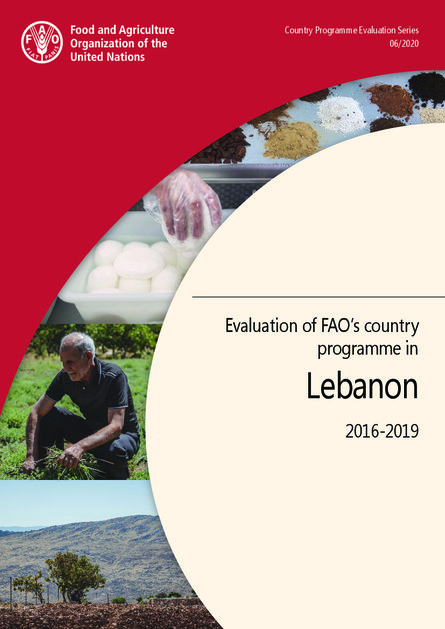
Lebanon is an upper-middle income country with a population of 4.5 million people. The agriculture sector in Lebanon is an important contributor to the livelihood of poor and vulnerable populations, including 1.5 million Syrian refugees hosted in the country. FAO prudently integrated the donor priority and the government priority by designing the resilience programme to support host communities, with emphasis on vulnerable farmers. FAO’s resilience programmes addressed both emergency and longer term development needs through interventions directly supporting small-scale farmers and agro-food cooperatives, community-based subsector planning, natural resource management and capacity development at different levels.
In the context of the recent financial crisis and renewed interest in agriculture under the United Nations-World Bank Partnership Compact, the evaluation recommends that FAO should assist the Government of Lebanon in undertaking the needed transformation of agriculture to a more productive and job-creating sector.
Priority actions include: developing a sector strategy and roadmap towards sustainable and productive agriculture sector; putting in place economic incentives in value chains; building human capital (planning skills of decision makers and entrepreneurial mindset of farmers); and supporting sustainable and productive resource use.